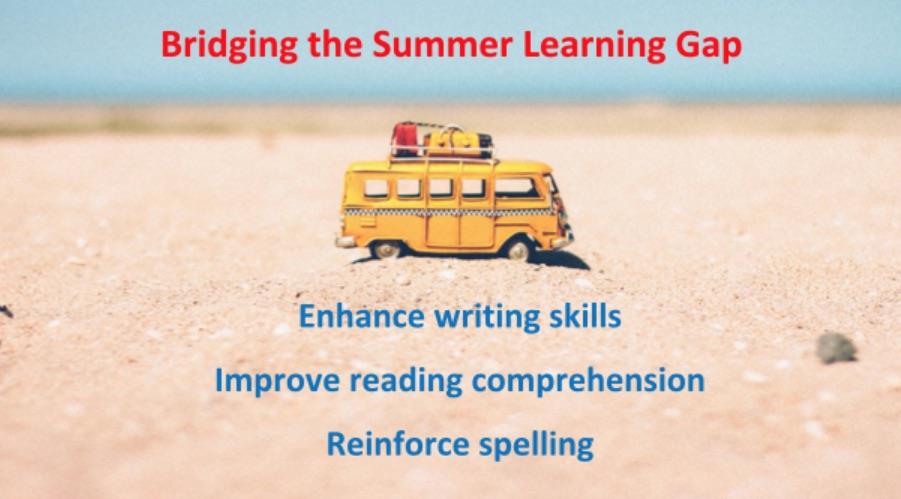
The Power of Touch Typing
As the summer holidays approach, pupils eagerly anticipate a break from the structured routines of school. While it's essential to recharge and enjoy the summer, there is often a concern about the summer learning gap. This phenomenon, known as the ‘summer slide’, refers to the loss of academic skills and knowledge that can occur during an extended break.
The summer learning gap is a well-documented issue affecting pupils of all ages and abilities, especially those who struggle academically at school. Research has shown that pupils can lose a significant portion of their academic progress during the extended break. This regression can particularly impact core reading, writing, and critical thinking skills.
Some parents turn to maths and English tuition over the holidays, but children do not necessarily want or need more of the same. Fortunately, there is a different way to bridge the learning gap, counteract the decline and enhance pupils’ abilities with a valuable skill, transforming the summer break into a period of productivity – touch typing.
What is touch typing?
Touch typing is the skill of typing without looking down at the keyboard. It involves using all digits to type quickly and accurately and relies on familiarity with key placements and regular practice to reinforce learned patterns and build muscle memory. By mastering this technique, pupils can significantly increase their typing speed and accuracy. While it may seem like a simple process, touch typing can significantly impact pupils' academic success.
Enhance writing skills
Writing is a fundamental skill across all subjects. One of the most significant advantages of touch typing is that it can enhance pupils' writing skills. By learning to touch type quickly and accurately, pupils can effortlessly translate their thoughts into words, boosting their writing speed and fluency. This increased efficiency allows them to focus more on the content and structure of their writing rather than struggling with the mechanics of typing. This can lead to more thoughtful and improved composition skills.
Improve reading comprehension
In addition, touch typing proficiency can also help with reading comprehension. When pupils touch type, they can focus more on the text they are reading rather than constantly breaking their concentration by looking up and down between the keyboard and screen. This simple difference can help with reading flow and understanding.
Reinforce spelling
Touch typing can also reinforce spelling and vocabulary, as the repetitive nature of practising exercises automatises correct spelling, builds muscle memory and expands vocabulary.
Increase productivity
Quick and accurate typing increases productivity. Pupils who are proficient touch typists can complete assignments and projects quickly and efficiently, leaving more time for other activities.
SEN
Concerning neurodivergent pupils, learning to touch type can help address many of the challenges they face, from difficulties with writing and spelling to processing and slow work rate. The skill provides a new medium for learning and communicating, encourages independent learning and helps boost confidence and self-esteem.
Conclusion
Learning to touch type over the summer holidays can help bridge the summer learning gap by improving writing skills, enhancing reading comprehension, and increasing productivity while acquiring a valuable lifelong skill. Parents and teachers can offer encouragement and support by providing incentives, such as a reward for reaching a certain speed or accuracy level. They can also integrate touch typing into summer learning activities by having pupils type out summaries of books they have read or journal entries about their summer experiences. By investing a little time each day, pupils can transform their summer break into a period of growth and development.
The summer holidays need not be a time of learning regression and missed opportunities. Learning to touch type offers an effective solution to bridge the learning gap.
National Ofqual-regulated qualifications in touch typing skills – Level 1 & 2
As well as our inclusive touch typing course, we also offer the only national Ofqual regulated qualifications in touch typing skills (Level 1 & 2) for learners who want to verify their skill. All successful learners receive a digital certificate and have the qualification added to their education records.
https://kaz-type.com/products/openawards-ofqual-regulated-qualification
Duke of Edinburgh Awards – Skills Section
Alternatively, we are a DofE Approved Activity Skills Provider, offering our online course towards the Bronze, Silver and Gold Awards.
https://kaz-type.com/duke-of-edinburgh-bronze-silver-gold-award
Copyright KAZ Type Limited 2025. KAZ is a registered trade mark of KAZ Type Limited.
Developed by : STERNIC Pvt. Ltd.